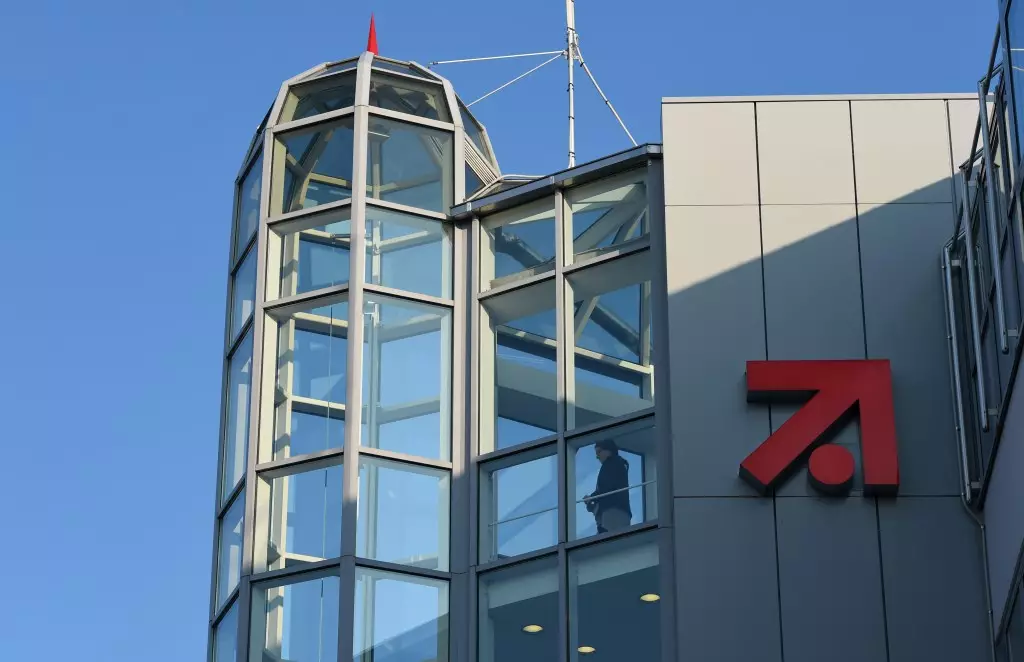In the ever-evolving landscape of media and entertainment, ProSiebenSat.1, one of Germany’s leading commercial broadcasters, recently released its third-quarter financial results for 2024. Despite facing mixed outcomes, the company has highlighted a burgeoning strength within its streaming sector. This article delves into ProSiebenSat.1’s financial performance, reflecting a complex interplay of traditional advertising and digital growth amidst a challenging economic backdrop.
ProSiebenSat.1 reported total revenues of €882 million for the third quarter, representing a modest decline of 0.6% compared to the same period last year. Similarly, adjusted EBITDA fell by 5.6%, amounting to €104 million down from €110 million in 2023. Notably, while adjusted net income experienced a remarkable surge of 32.6% — increasing from €23 million to €31 million — the company also reported a significant drop in adjusted cash flow, plummeting 36% from €61 million to €25 million.
Earnings for the year-to-date reflect a slight improvement, with revenues totaling €2.66 billion, a negligible increase from the €2.57 billion reported in the previous year. Adjusted earnings were almost identical, decreasing from €888 million to €882 million. These numbers contextualize ProSieben’s acknowledgment of the current economic climate in Germany, particularly the noticeable consumer restraint impacting TV advertising investments.
ProSiebenSat.1’s management noted that various external factors have largely shaped their financial outcomes. A sluggish German economy, combined with modest private consumption levels, has constrained growth. The company specifically highlighted the competitive broadcasting environment surrounding significant sporting events, including the European Football Championships and the Summer Olympics, which may have diverted consumer attention away from traditional media. As such, the company cited a decline in revenues from its Dating & Video segment, further indicating the challenges faced in adapting to shifting consumer preferences and economic conditions.
TV advertising revenues fell below last year’s figures, further complicating ProSieben’s prospects. As traditional media grapples with a cautioned advertising landscape, ProSiebenSat.1 has increasingly sought refuge in its streaming offerings, similarly echoed by companies such as Warner Bros Discovery and ITV.
Despite daunting challenges, ProSiebenSat.1 has successfully harnessed the growth potential of its streaming services. The company’s Digital & Smart vertical, which includes its ad-supported streaming platform Joyn, experienced an impressive 28% year-over-year growth in AVOD revenues. Joyn reported a whopping 53% increase in monthly video users, rising to 6.8 million, and total viewing time expanded to 27.9 billion minutes, showcasing a 34% year-on-year increase.
This digital growth contributed to overall advertising revenue stability in the German-speaking regions of Europe, with a 7% increase in revenues from Digital & Smart advertising offerings. The Entertainment segment, despite a 3% dip in quarterly revenues due to falling advertising income—which came in at €579 million—posted external revenues of €1.74 billion for the first nine months of the year, a 2% upturn.
ProSiebenSat.1 has expressed its strategic commitment to Joyn as a cornerstone for its ad-funded streaming model and the diversification of its digital entertainment portfolio. Martin Mildner, the Group CFO, commented on the pressing need for adaptability in response to a less favorable landscape for private consumption—vital for TV advertising revenue—as they navigate 2024 expectations. The focus on prudent cost management alongside growth in the Digital & Smart and Commerce & Ventures segments reflects a proactive approach to overcoming existing economic hurdles.
Amid these developments, ProSiebenSat.1 has also undertaken efforts to divest non-core assets such as its e-retailer businesses, Flaconi and Verivox. This move follows an earlier campaign by their major shareholder, MediaForEurope, which sought to influence corporate strategy.
As ProSiebenSat.1 continues to confront this multifaceted landscape, balancing between traditional and digital avenues will be crucial for sustaining its relevance and growth in the competitive media sphere. The coming quarters will reveal whether the strategic pivots made in response to the economic climate will yield fruitful results.
